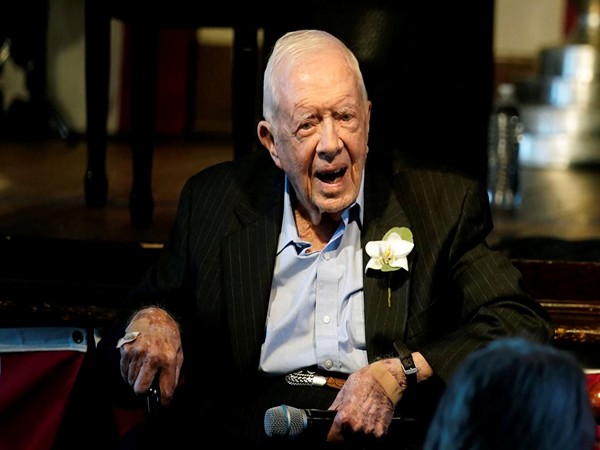Jimmy Carter: A Legacy of Democracy and Global Peace
Jimmy Carter, the 39th U.S. President, prioritized global democracy, focusing notably on Zimbabwe. His post-presidency efforts through the Carter Centre expanded democracy globally, monitoring over 125 elections. Key successes include Zimbabwe, Panama, and Nepal. His work earned a Nobel Peace Prize, leaving a lasting legacy on election integrity worldwide.

- Country:
- Zimbabwe
Jimmy Carter, the 39th President of the United States, is remembered for his unwavering commitment to promoting democracy worldwide. He notably prioritized the independence and democratic evolution of Zimbabwe during his presidency.
After leaving office, Carter's dedication to democratic principles continued through the Carter Centre, an organization he founded in 1982. The Centre has monitored over 125 elections in 40 countries, making significant contributions to global election integrity, including in Panama and Nepal.
Carter's efforts in advancing democracy were recognized with the Nobel Peace Prize in 2002, cementing his legacy as a staunch advocate for free and fair elections and human rights worldwide.
(With inputs from agencies.)
ALSO READ
Afghanistan's Farooqi Penalized in ODI Against Zimbabwe
Fazalhaq Farooqi Fined for Dissent: Afghanistan Triumphs Over Zimbabwe
Unlocking Zimbabwe's Land Value: Landmark Policy Shift for Farmers
Afghanistan Secures Series Win Over Zimbabwe with Commanding Performance
Former Man City player Benjani Mwaruwari challenges ruling in bid to lead Zimbabwe soccer federation










